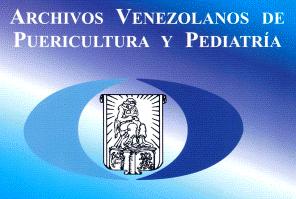Conocimiento, actitudes y prácticas maternas sobre alimentación de lactantes que consultan en un hospital latinoamericano
Palabras clave:
Alimentación Complementaria, Lactante, Conocimiento, Practicas, Actitud, Complementary Feeding, Infant, Knowledge, Practices, AttitudeResumen
Introducción: el estado nutricional del niño en los dos primeros años de vida constituye la base del crecimiento y desarrollo óptimo del niño, y garantiza la salud del adulto futuro. La tarea de alimentar está directamente influenciada por el conocimiento, actitudes y prácticas de las madres cuidadoras. Una estrategia sólida para mejorar el estado nutricional de los niños sería la capacitación de estas. Objetivo: establecer el nivel de conocimiento, actitudes y prácticas de alimentación de madres de lactantes. Método: se realizó un estudio observacional, transversal, tipo encuesta sobre lactancia humana y alimentación complementaria a madres de niños menores de dos años de edad que acudieron a los servicios de pediatría del Instituto Autónomo Hospital Universitario de los Andes en Mérida-Venezuela durante el lapso septiembre-diciembre 2019. Resultados: se incluyeron 150 madres, 74,7% con 20 a 35 años de edad; 61,3% multigestas; 50,7% de procedencia urbana; 37,7% con estudios secundarios incompletos y 29,3% universitarios, que reportaron un nivel conocimiento intermedio (82%), actitudes y prácticas adecuadas en 90 y 99% respectivamente. Se identificó como grupo susceptible de apoyo educativo a madres multíparas (p= 0,015). La fuente de información principal es el personal de salud. Conclusión: la identificación de grupos maternos de riesgo y áreas del conocimiento deficiente sobre alimentación en los primeros años de vida permitirá promover intervenciones educativas que garanticen salud para la población. El personal de salud debe prepararse en responsablemente en el área para que no existan oportunidades perdidas para orientar a las madres sobre la alimentación de sus hijos.
Introduction. the nutritional status of the child in the first two years of life constitutes the basis for the optimal growth and development of the child, and guarantees the health of the future adult. The task of feeding is directly influenced by the knowledge, attitudes and practices of the caregiving mothers. A solid strategy to improve the nutritional status of children would be child training. Objective: to establish the level of knowledge, attitudes and feeding practices of nursing mothers. Method: An observational, cross-sectional, surveytype study on human breastfeeding and complementary feeding was carried out on mothers of infants who attend the pediatric services of the Autonomous Institute Hospital Universitario de los Andes in Mérida-Venezuela during the period september-december 2019. Results: 150 mothers were included, 74.7% with 20 to 35 years of age; 61.3% multigestas; 50.7% of urban origin; 37.7% with incomplete secondary studies and 29.3% university, who reported an intermediate level of knowledge (82%), attitudes and adequate practices in 90 and 99% respectively. Multiparous mothers were identified as a group susceptible to educational support (p = 0.015). The main source of information is health personnel. Conclusion: the identification of maternal risk groups and areas of deficient knowledge about nutrition in the first years of life will allow promoting educational interventions that guarantee health for the population. Health personnel must prepare responsibly in the area so that there are no missed opportunities to guide mothers on feeding their children.

